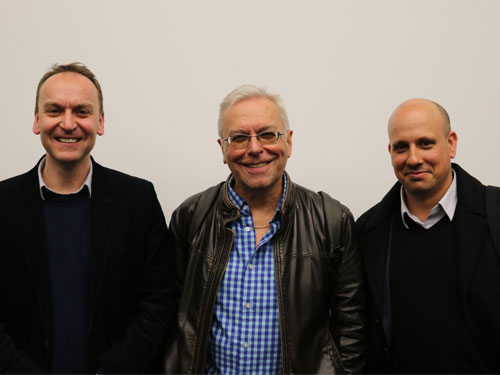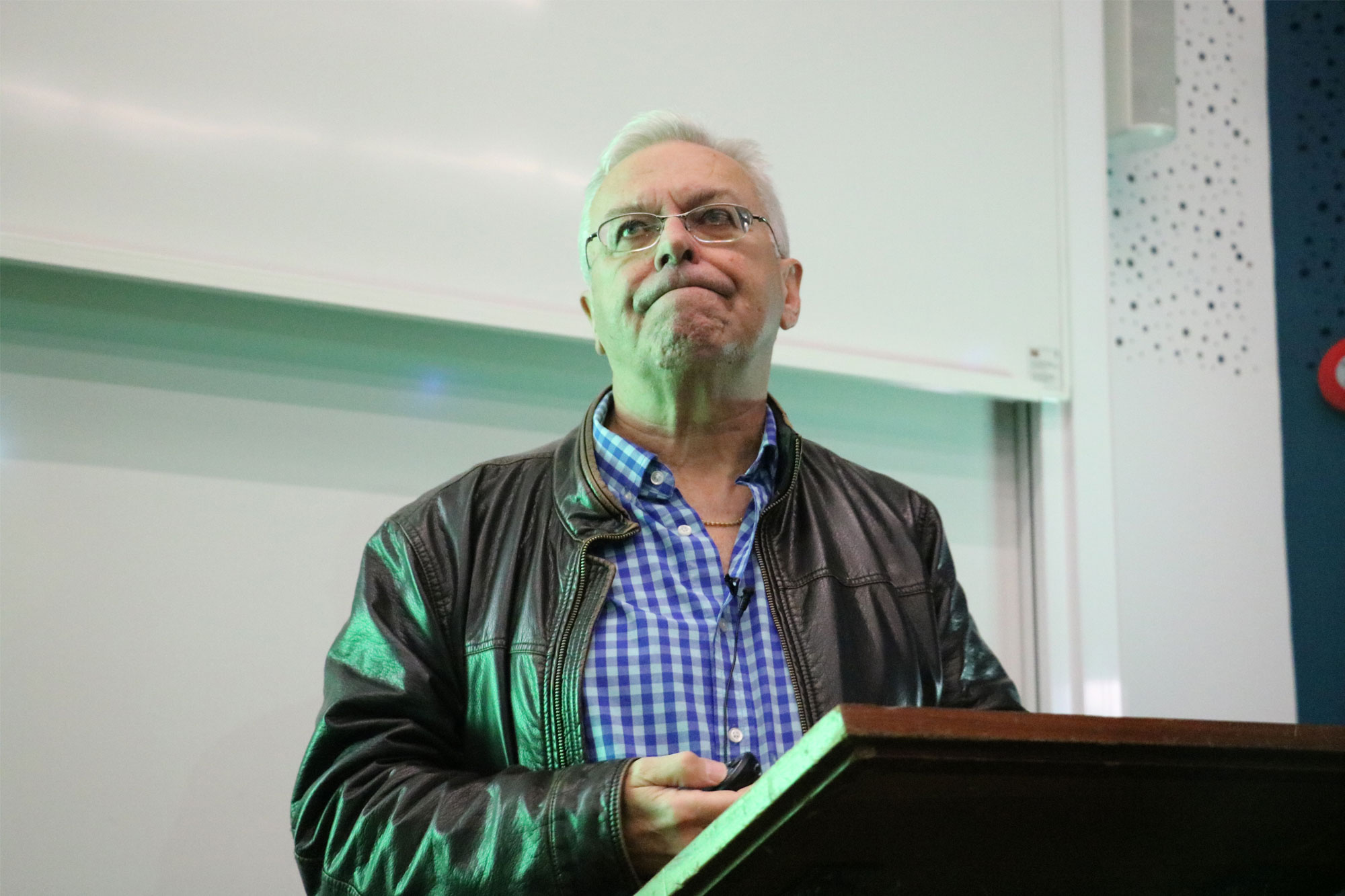This year’s Kent Interdisciplinary Centre for Spatial Studies (KISS) annual lecture was an exceptional talk given by Peter Wall Distinguished Geography Professor Derek Gregory, University of British Colombia, Canada.
In what is envisaged as the foundation of long-term Geography scholarship at the University of Kent, it was a true honour to host one of the prominent figures in the field for what will undoubtedly not be the last KISS geography-themed annual lecture. Professor Derek Gregory provided an enlightening presentation to a full house with an audience of over 200 turning up for this special occasion. Skilfully unpacking the intimate relationship between technological advances, geographies of war and American global military domination, Gregory highlighted how the matrix of power continues to impact our public and private spheres at multiple planetary scales.
In his detailed and intimate analysis of the “military kill chain” and its spatial, moral and psychological geographies, he portrayed how the drone operator safely stationed on a US airbase in the North American Midwest safely drives home for dinner with his family while his target has just been eliminated thousands of miles away in the Middle East or Africa. The forensic procession in which the relational distances are exposed via technological superiority allows for an interpretation of what was stressed as an ongoing blurring of ethical and moral boundaries, leading to a domination of ‘post-truth’ narratives and growing misjudgements of what is perceived (or not) as military oppression and extreme violence in a North-South controlled global divide.
Through the representation of the deep-rooted American military supremacy and its global impact on the Anthropocene, Gregory highlighted the looming future challenges and uncertainties from a societal and humanitarian perspective. Paying specific attention to ‘the war on terror’ and its renowned drone executions, he skilfully outlined their devastating impact on local populations in areas where there is no government providing a military aerial challenge or to protect civilian populations. If I was asked to choose one key element to take from such a rich lecture of geographical scholarship, it is no doubt the importance of ‘space’ in defining the limits of military superiority.
The KISS annual lecture was a great opportunity for staff, students and special guests to engage with prime geographical scholarship in one of the lecture theatres in the new Templeman Library extension on the ever-expanding Canterbury campus. In his talk, Professor Gregory alluded to a deep sense of morality within the politics of resistance, pointing us towards new ways of preventing the expansion of violent borders and domestic battlefields, and how to stop them from dominating our planet throughout the rest of the 21st century. In several ways, the evening was a delightful occasion providing a first, but certainly not last, platform to celebrate the inauguration of the BSc in Human Geography at the University of Kent.
Text provided by Dr Jonathan Rock Rokem (j.rock@kent.ac.uk).



